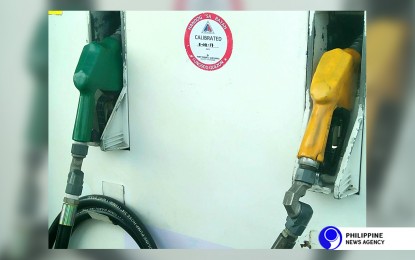
(PNA file photo)
MANILA – Coconut industry leaders want changes in the amount and kind of additives that are mixed in locally sold diesel fuel to increase the revenues of farmers and refiners, and also to cushion the domestic impact of rising crude prices in the international market.
In an interview on Wednesday, Jesus Arranza, president of the Coconut Oil Refiners Association (CORA), said his group advocates for amendments to Republic Act (RA) 9367, the Biofuels Act of 2006, to allow for the shifting between locally-produced coco methyl ester (CME) and imported palmolein oil as additives to diesel fuel, depending on which commodity is cheaper in the world market at a given moment.
“When coconut prices are high, we should substitute it with palmolein (in diesel fuel). This will allow us (coconut sector) to sell coconut oil in the world market at a premium. This substitution of additives can also help tame local prices (of diesel) when (international) petroleum prices are high… by mixing whatever additive is cheaper, he told the Philippine News Agency (PNA).
For his part, Dean Lao, Jr., chairman of the United Coconut Association of the Philippines (UCAP), said in a statement on Wednesday that the government should take advantage of the lower price of nature-friendly biodiesel by raising CME mix to diesel to five percent to generate huge foreign exchange savings, which he claims is equivalent to PHP23.4 billion yearly.
Aside from enhancing the fuels’ ability to cut pollutant greenhouse gas emissions, the increase in biofuel will enable the Philippines to displace a large amount of imported diesel, he added.
“We are importing 13 billion liters of diesel (yearly). From B2 (two percent biodiesel) to B5 (five percent biodiesel), we can displace an additional 390 million liters equivalent to PHP23.4 billion,” Lao told reporters during a Philippine Chamber of Agriculture and Food, Inc. (PCAFI) press briefing.
RA 9367 mandates that diesel sold locally should contain two percent CME because this mixture helps mitigate harmful emissions.
There is presently no provision under the law that allows for the substitution of CME with palmolein, but the Department of Energy (DOE) has reportedly reviewed its feasibility.
UCAP is the umbrella organization of local coconut industry organizations of which CORA is also a member.
Meanwhile, Arranza, who is also chairman of the Federation of Philippine Industries (FPI), said the National Bureau of Investigation (NBI) and the Bureau of Internal Revenue (BIR) have launched a probe into at least 14 local companies on suspicion that they are technically smuggling palmolein into the country.
He said that palmolein is being imported in the guise of being used as an additive to animal feeds, for which importers are granted tax-free privileges.
Arranza claimed that instead of being blended in animal feeds, the imported palmolein, the liquid fraction obtained during fractionation of palm oil, is actually sold locally as cooking oil and biodiesel additive, for which taxes must be paid to the government.
He disclosed that concerned agencies have been coordinating with the FPI, because the business group is at the forefront of efforts to curb smuggling.
Arranza stressed that unabated outright and technical smuggling has caused great damage to many local businesses including those under FPI's banner. (PNA)
